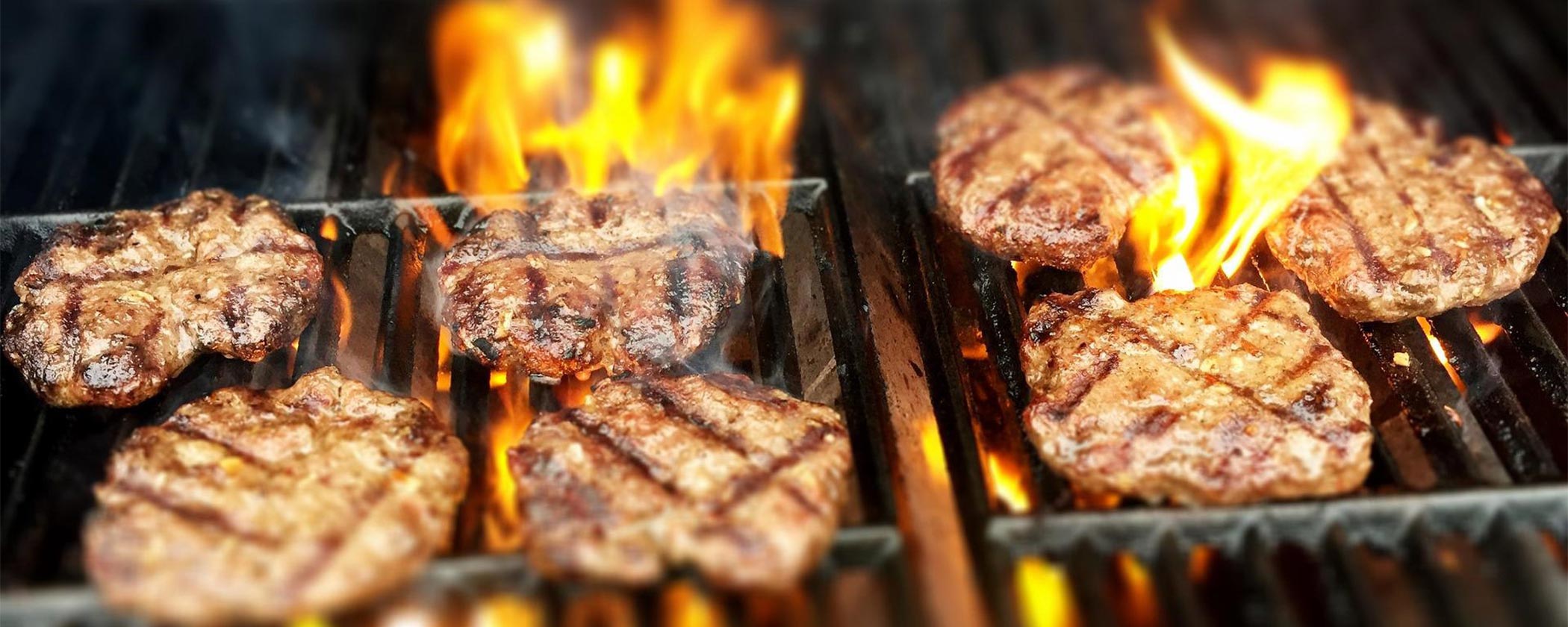
Let’s Get Grilling!
— By Kathy Savoie, Extension Educator, University of Maine Cooperative Extension
The propane tank is full and it seems like the weather is cooperating for the return to grilling season at my house. Many of us enjoy cookouts and backyard barbecues during the spring and summer months. Unfortunately, barbeque season brings an increase in foodborne illness. Follow these guidelines to avoid foodborne illness when grilling:
- Whether you are grilling, baking, or microwaving meat, fish, or chicken, defrost (thaw) your frozen food properly. The best way to thaw food is in the refrigerator, where it will remain safe at 40°F or below. It’s best to plan ahead for slow, safe thawing in the refrigerator. Small items may defrost overnight. But most foods require a day or two.
- When microwave-defrosting food, some parts may become warm and begin to cook during microwaving. So cook microwave-defrosted food right away.
- Never thaw your food in hot water, or leave it out on the counter all day. These ways of thawing are not safe, and increase your risk of foodborne illness. None of us want to be sick!
- Make sure you have clean utensils, platters, and plates. To prevent foodborne illness, use different utensils and platters for raw meat and poultry than for cooked meat and poultry. Raw meat and poultry and their juices may contain harmful bacteria that can contaminate safely cooked food.
- Keep meat and poultry in the refrigerator until they are ready to be grilled. Make sure the grill is ready and has enough fuel to cook your food completely.
- Don’t eat raw or undercooked hamburgers made from ground meat or poultry. Harmful bacteria may be present. To kill bacteria, thoroughly cook meat and poultry. Grilling can make the outside of meat look done when the inside is not. The inside should not be pink! Use a meat thermometer to test for doneness.
USDA temperature guidelines for properly cooked meat
| Food | Safe internal temperatures |
| Beef, veal, and lamb steaks and roasts (with 3 minute rest) | 145˚F |
| Fish | 145˚F |
| Pork (cuts) | 145˚F |
| Ground Meat (beef, veal, pork, sausages and lamb) | 160˚F |
| Egg dishes | 160˚F |
| Chicken, turkey, duck (whole, pieces, and ground) | 165˚F |
Serve hot, grilled foods immediately. Put cooked food on clean plates. Don’t reuse plates that were used to hold raw meat or poultry. Perishable foods should be eaten within two hours, or one hour if the outside temperature is above 90°F. Remember to keep cold foods cold (below 40°F) and hot foods hot (over 140°F). Keep food out of the danger zone of 40°F to 140°F.
Clean the grill after each use. Also, refrigerate any leftovers promptly. Divide larger quantities into small, shallow containers for faster cooling.
Enjoy your feast! Summer in Maine passes quickly so take time to enjoy it while it lasts.
